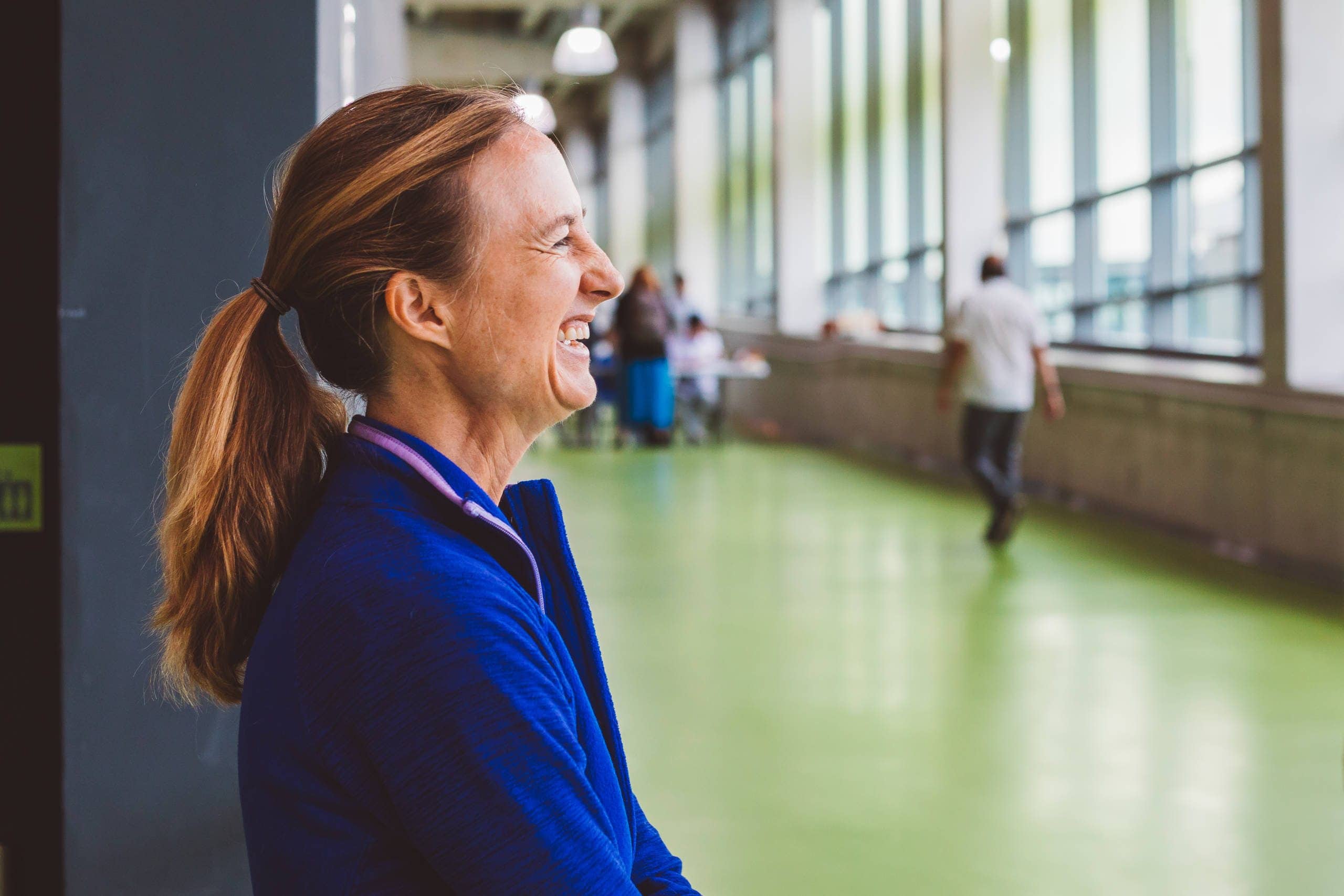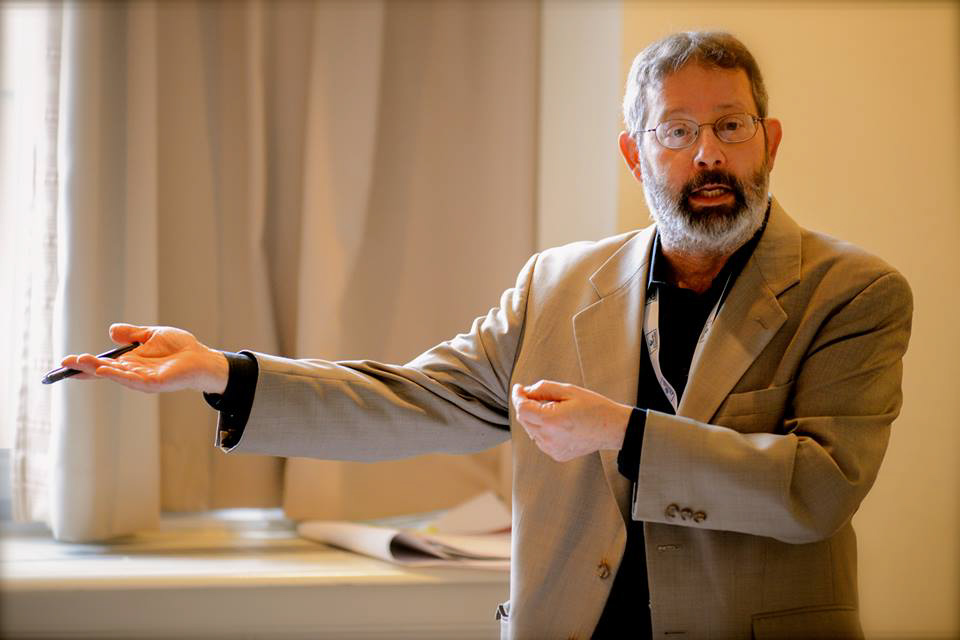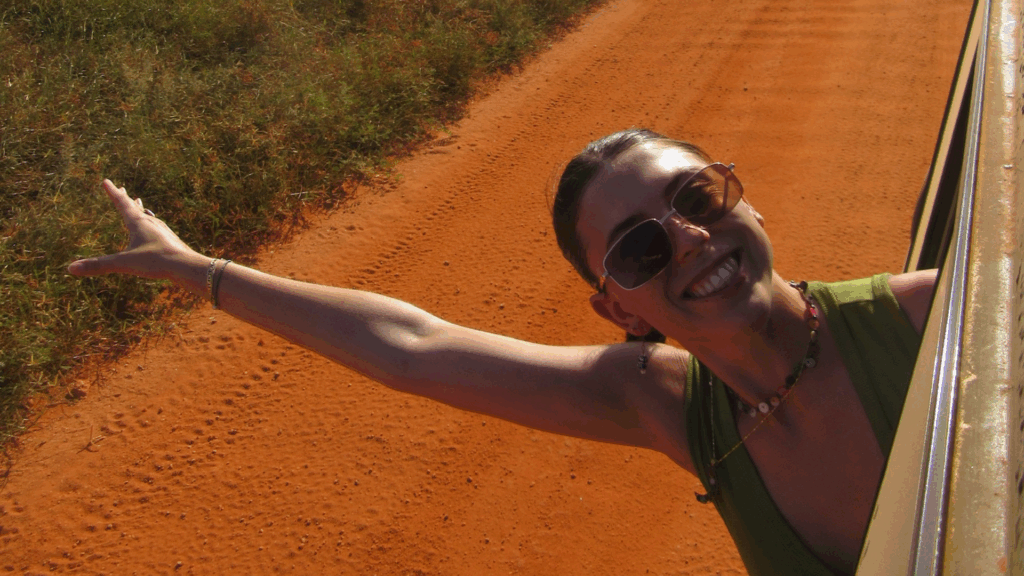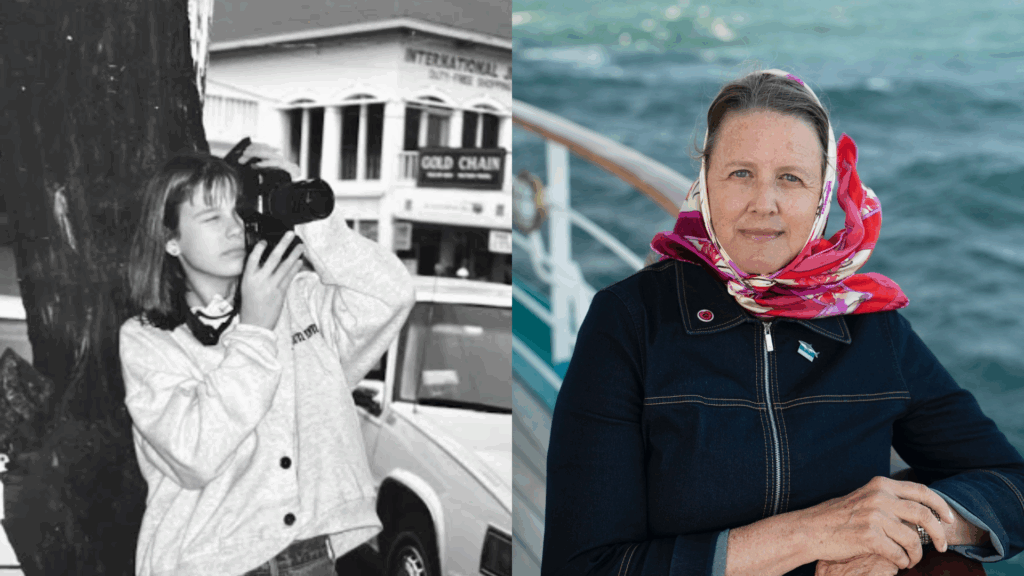Fall 2018 Academic Dean Dr. Mary Vogl chairs the Department of Languages, Literatures and Cultures at Colorado State University and has previously served with Semester at Sea as the Interport Lecturer for Dakar, Senegal. Ahead of Dr. Vogl’s first full voyage with Semester at Sea, she sat down to answer a few questions about expectations, excitement, and Fall 2018’s journey around the world.
Q: As someone who specializes in Northern African literature and culture, what do you hope students understand before and after disembarking from the various African ports?
There is incredible diversity among the 54 countries of Africa and there is diversity within each country. Here’s an example from my discipline: there are more than 2000 languages spoken on the continent, and in Ghana alone, there are 81 distinct languages, and 34 in South Africa. A recent National Geographic article says, “There’s more diversity in Africa than on all the other continents combined.” And they were talking about genetic diversity, but I think the language piece is also very fascinating. In the island country of Mauritius, which has a population of 1.3 million, people have ancestors from India, continental Africa, China, France, and Great Britain. Mauritian Creole is a fascinating mix of languages. I hope when students finish their voyage, they have a different view of Africa altogether.
Q: What are you looking forward to most during this voyage?
This is Semester at Sea’s 125th voyage and I think it is going to be the best one yet! I’m looking forward to interacting with students who are passionate about exploring the world. This will be my first full voyage. I sailed as an Interport Lecturer from Morocco to Senegal in Fall 2016. I was humbled that many students came up to me and asked me to brainstorm with them about their future. It felt good to offer some expertise, but making them feel listened to and appreciated was what tugged on my heart. It was nice to feel like I could have that rapport with students, which I think is a testament to the community at SAS. I liked the accessibility that I had to students and they had to me. Traveling with my husband and our two teenagers will be an experience we can look back on and cherish. This will be our first visit to Asia, so I’m excited about that. Also, we have a great group of colleagues that I’ve been getting to know in the lead-up to the trip and I can’t wait to learn about areas outside my own field, like astronomy, plastics in the ocean, Indian philosophy, and South African theatre! I couldn’t just pick one thing to be excited about.
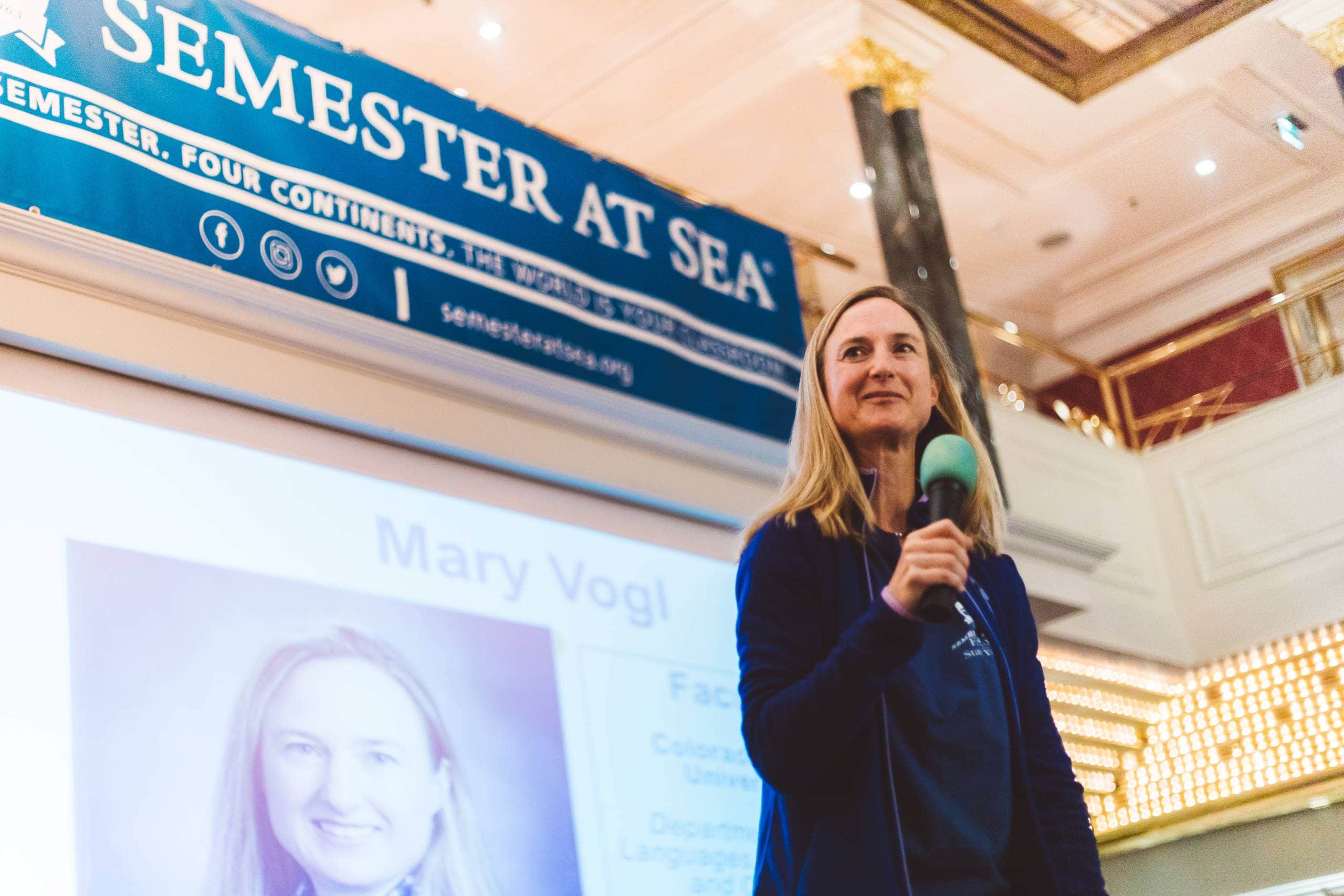
Q: As an avid traveler yourself, what do you think will be the biggest takeaway for students on the voyage?
I think that traveling, if done right, is an experience in humility. When you learn, you realize how much more there is to know. You’ll gain lots of information and develop skills in Global Studies and in your other classes, and visiting places in person is priceless. Comparing the various countries will give you lots of insights, but you will realize that deep understanding of a culture is a lengthy process. For more than 30 years I’ve been studying Morocco and France. I’ve lived there for periods, and visit regularly, but there is still so much I want to learn. We have to know that we won’t learn it all in a semester, but it will open the doors to want to learn even more and travel more as a result. Even the mistakes and faux pas that we make ‚Äì and we will ‚Äì are part of our learning, if we have the humility for it to be so.
Q: Why did you decide to get involved with Semester at Sea?
Almost 20 years ago when I arrived at CSU I had the incredible fortune to be nominated to work on a grant project co-led by Alicia Cook. She is a visionary leader who has helped countless professors put international education at the center of their mission. Alicia eventually became the Senior Academic Officer on Semester at Sea and encouraged me to apply for the Academic Dean position. I’ve always encouraged my French students to study abroad to immerse themselves , and the longer, the better , so at first I was skeptical of Semester at Sea’s “dip the toe” model, but now I see the immense value of comparative education. And I hope that students will decide, after getting that toe wet, that they love swimming and will have other, longer, international experiences.
Q: As the academic dean on the ship, what is your advice for students sailing on this year’s voyage?
I think a huge challenge is going to be finding a balance of how you spend your time and your energy. I think all of us signed up for SAS to have fun, make new friends, take selfies in cool places, try new foods. But you didn’t sign up for a Carnival cruise. You chose SAS to take courses with brilliant, dedicated professors who have so much expertise. If you give enough to your academics, you’ll get so much more out of the things you’re seeing while in port. You want to know more about these countries than the casual tourist who just goes for the sensory experience. You want to expand your knowledge base and your skill set to be ready for your career and your life as someone who is constantly learning. My advice is to apply yourself in your courses ‚Äì do the readings, take advantage of the access that you have to your professors, Interport Lecturers and students, Lifelong Learners. If you fall behind in a class, we’re here to help you get back on track. We want everyone to learn and grow and flourish.
